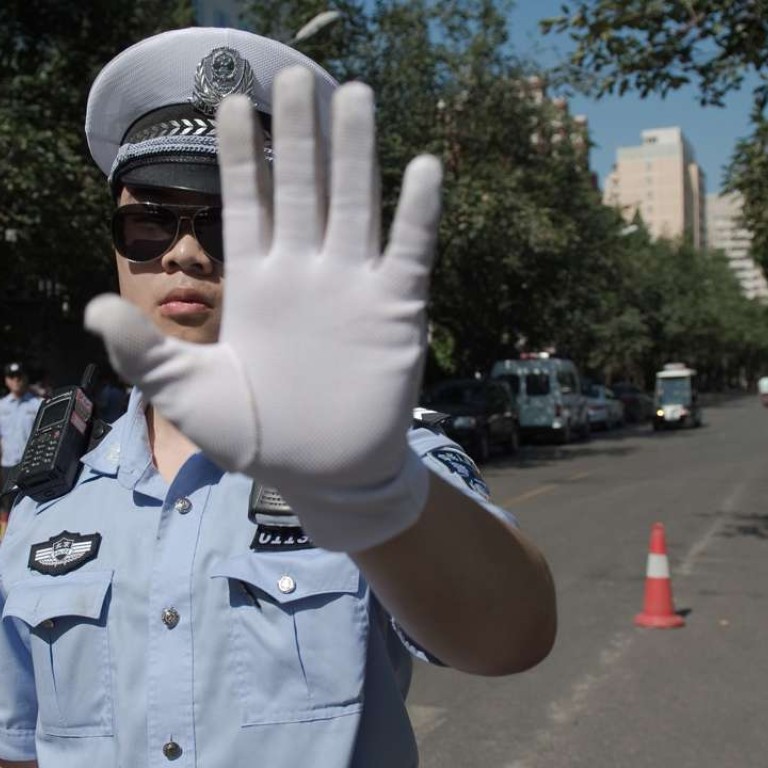
Chinese free to film police - as long as they don’t get in the way
Ministry of Public Security gives nod to move expected to help keep check on law enforcement
Chinese residents can now record the actions of police officers as long as it does not stop them from doing their job.
The decision from the Ministry of Public Security comes two months after the suspicious death in custody of Beijing resident Lei Yang sparked national outrage.
The ministry announced the move on Tuesday as it rolled out new protocols for law enforcement officers handling criminal, public order and traffic incidents, state broadcaster CCTV reported.
The move is expected to help keep police in check but there were no details on how it will be enforced.
Police should accept public monitoring and get used to implement law under cameras
“Police should accept public monitoring and get used to implementing the law in front of cameras if members of the public record the actions without hindering law enforcement,” CCTV reported, citing the new protocol.
Police officers are already required to clearly identify themselves and their activities, using mobile devices to record the law enforcement process. An increasing number of people are also using their mobile phones to film police handling of social unrest.
Environmental scientist Lei, 29, died in police custody in May just 50 minutes after he was approached by plainclothes officers for an identification check in his neighbourhood.
The public blamed his death on police handling, with two case officers arrested on suspicion of dereliction of duty.
Under the new protocol, all officers have to carry their police ID on them at all times.
Plainclothes officers must present their identification upon approaching civilians. Uniformed police need to present identification if asked to do so by civilians.
Police are also urged to release civilians politely when they are cleared of suspicion, but they retain the right to restrain civilians if they refuse to cooperate.
Traffic police must remain and maintain a safe distance from those they approach. They must also make the welfare of children a priority above enforcing the law.
Wen Donghai, a traffic police officer turned lawyer, said he welcomed the new protocol but feared the effect could be limited, citing concerns over how rigorously it will be enforced.
Civilians have the right under the constitution to monitor the work of police but sadly that right is often denied by police officers
“Civilians have the right under the constitution to monitor the work of police but sadly that right is often denied by police officers who sometimes even respond with violence,” he said.
Wen called on policymakers to go one step further and introduce laws to check police power.
“Policemen should accept public monitoring and get used to implementing the law in front of cameras if members of the public record the actions without hindering law enforcement,” CCTV said, citing the new protocol.

